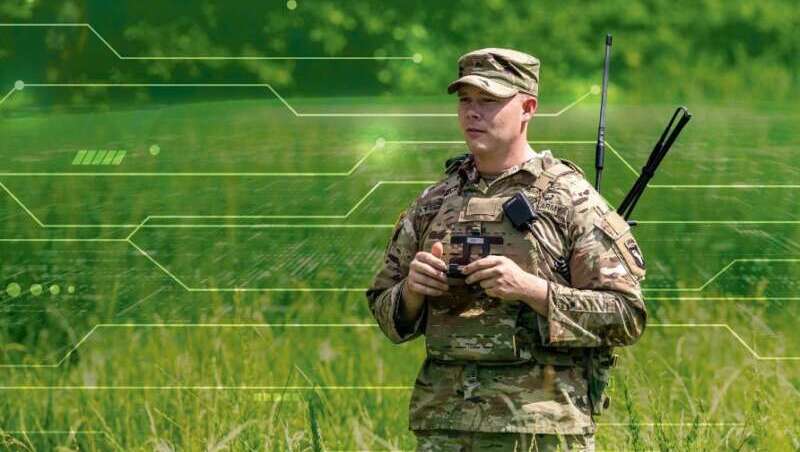
The U.S. Army is getting ready to roll out a new enlisted military occupational specialty (MOS) dedicated to space operations that will enable soldiers to deliver space-based capabilities directly to the fight on the ground.
The new MOS – known as 40D Space Operations Specialist – is set to become official by October 2026, but the Army is already identifying soldiers with the right skills to lead in this emerging domain.
“These soldiers will become the experts we turn to during the next conflict,” Lt. Gen. Sean Gainey, commander of the Army Space and Missile Defense Command, said during a media briefing on May 2.
The 40D specialists will integrate space capabilities into tactical ground operations for both conventional and special operations forces – a major shift as the Army expands its focus on space as a warfighting domain. Unlike the Space Force’s on-orbit mission, Army space operations are grounded in direct battlefield support.
“[We’re] focused on the tactical maneuver fight with our forces on the ground, pushing that capability forward so our forces [are] able to leverage the effects of a space-based system,” he said. “The good news is that there’s more than enough work for all of us on the battlefield today.”
Training for the new MOS will take place at the Space and Missile Defense Center of Excellence located at Peterson Space Force Base in Colorado Springs, Colo. Once initial entry training is completed, 40D candidates will receive instruction on key systems such as the Tactical Integrated Ground Suite, with opportunities for advanced training similar to other specialized Army roles.
According to Gainey, the 40D MOS is specifically designed to bring enlisted personnel – from specialist to command sergeant major – into the fold of the Army’s space mission, a field previously dominated by officers.
“Our Army space professionals support unique assets to interdict or disrupt adversaries’ use of space capabilities, ensuring Army forces maintain the initiative to fight from positions of relative advantage in all domains,” said Gainey.
Additionally, Gainey explained that this effort will not only bolster operational effectiveness but also stabilize the careers and retain talent of soldiers currently supporting space missions from other branches such as air defense, signal, and intelligence.
“This is a zero-growth effort,” Gainey said, indicating that no new personnel will be added; instead, existing soldiers will transition into the new role.
According to Gainey, interest in the new career field is already high.
“I want to encourage everybody [who’s] interested in the space 40D MOS to compete for it, but it’s going to be very competitive,” Gainey said.
